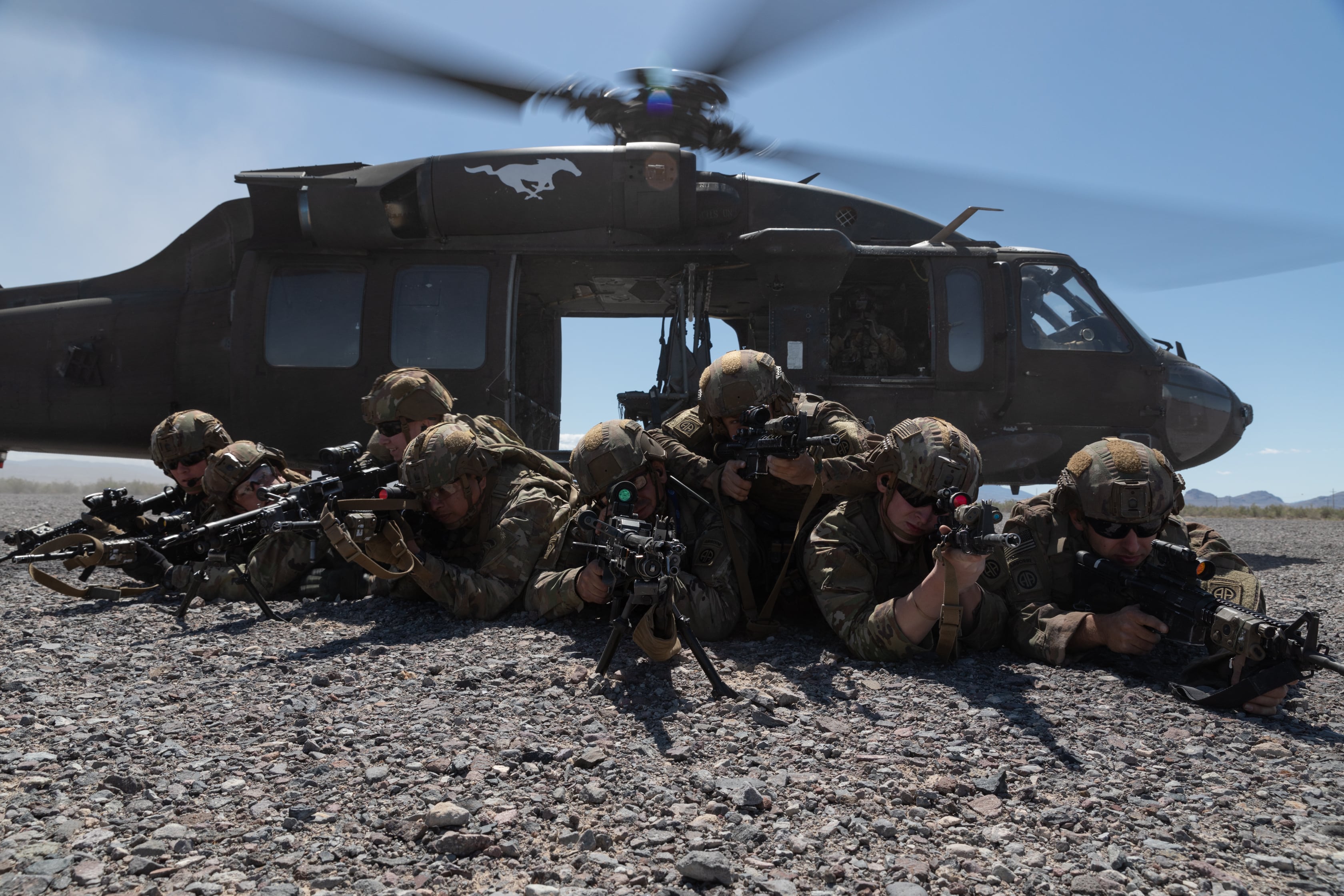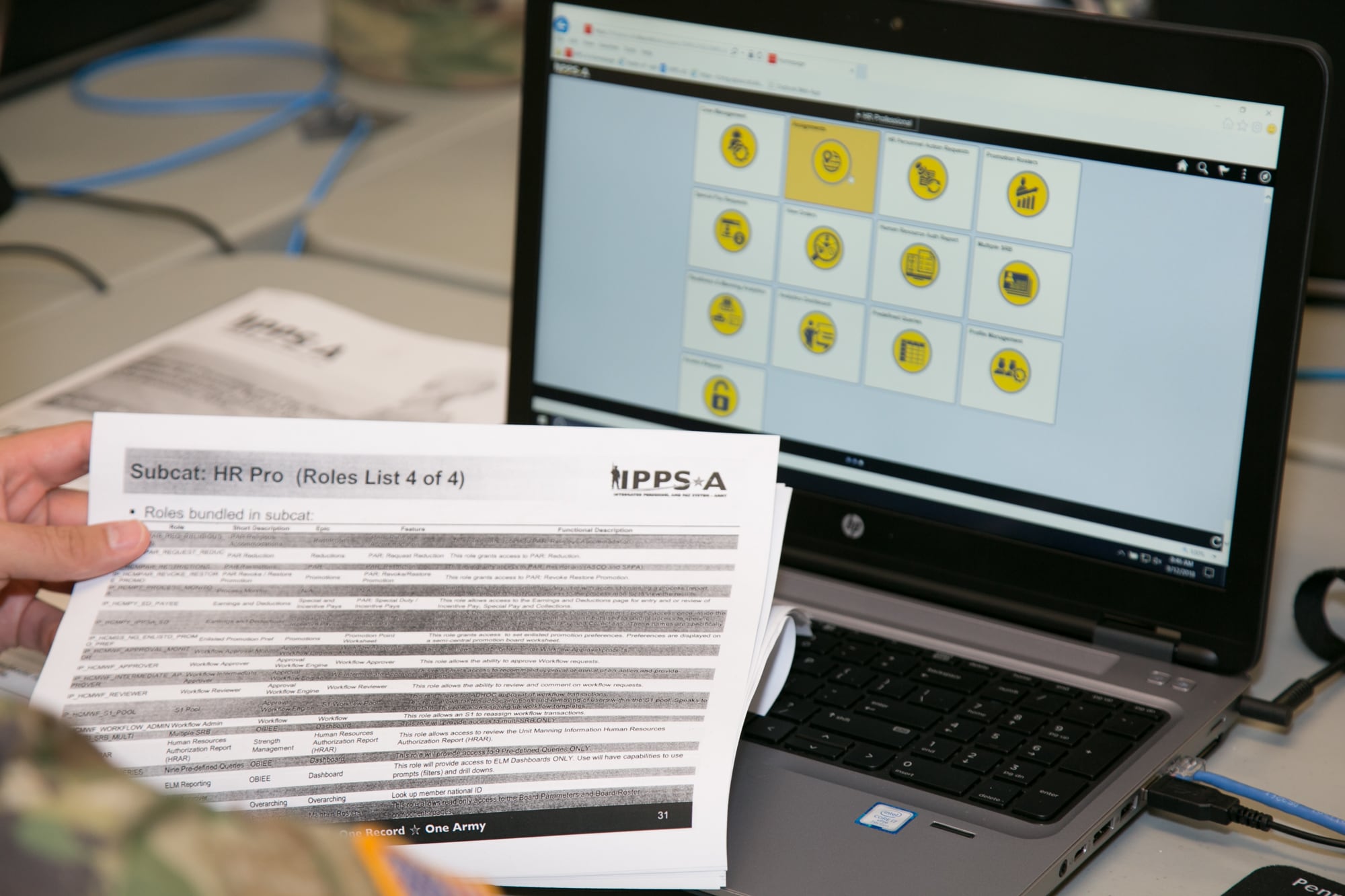The Army’s new human resources platform is facing another delay, but the service’s top personnel officials reiterated their commitment to the embattled platform and its necessity for personnel in phone interviews with Army Times.
The new Army G-1, Lt. Gen. Douglas Stitt, emphasized that the delay of the Integrated Personnel and Pay System-Army has had “no delay” on the Army’s talent management initiatives thus far. He also explained that HR professionals need the platform to harness talent management data and help troops reach their full potential.
The general and his senior enlisted counterpart, Sgt. Maj. Mark Clark, said existing platforms for talent marketplaces can continue in the absence of the permanent solution that IPPS-A is intended to provide.
“We have the workarounds [for current initiatives, but] how do we get to the transformative [capability]?” asked Stitt. “When [a general] walks in and says, ‘How many people are in the division today that speak Ukrainian ... and have ever served in Eastern Europe?’ that’s a straightforward question ... but that right now requires us to go into three different systems to answer it.”
Stitt noted that IPPS-A, when fielded, can improve the Army’s data analysis, which in turn can help the service’s human resources professionals “get predictive.”
The hypothetical query on Ukrainian speakers in U.S. uniforms could be answered entirely by reports from the new platform, Stitt said.
The general said HR training courses are reorienting to push data literacy and analysis in preparation for the increased capability that IPPS-A will offer.
“As an [Adjutant General] Corps, we’re at a bit of an inflection point — we’ve got to make that transition now to not just being data pullers,” Stitt said. “Now we can pull the data and give sound analysis off of what we see.”
Stitt argued that the Army’s future success “hinges on our ability to ... provide relevantly trained, capable [HR] professionals who ... will be able to envision” and anticipate their respective formations’ future talent needs and take action to ensure they’re met on time.
But it’s still not yet clear when the platform will launch. Service officials have heralded the program as the lynchpin of the Army’s data and talent utilization goals.
RELATED

A limited version of IPPS-A, which will replace the constellation of aging HR systems that currently serve the active duty Army and Army Reserve, is already live for the Army National Guard.
But the next release of IPPS-A has been pushed off multiple times now, and there has been no publicly acknowledged timeline for its launch after the most recent delay.
The first target launch date was in December 2021, but officials scuttled that plan when they realized that difficulties integrating the data from old the HR system meant the platform would only be 80% functional.
Senior leaders, including Army Secretary Christine Wormuth, committed to improving oversight and seeing the program through to completion.
The Army then promised a Sept. 20 launch date but called it off less than two weeks beforehand due to lingering problems with the platform’s ability to synchronize with key accessions and benefits databases.
Meanwhile, systems integration contractor CACI has pocketed more than half a billion dollars for the project thus far and received a no-competition extension that could see another $500 million go their way, according to trade paper Washington Technology and a GAO protest tracker.
Despite the halting progress, the Army appears to consider the project too big to fail.
The Army’s civilian Chief Information Officer, Raj Iyer, told Army Times that the IPPS-A debacle has helped inspire tech modernization reforms intended to improve oversight of complex systems contracts — plus a fundamental change in philosophy.
“We are starting to make progress ... but [with] decisions that have been made in the past, where we have too much sunk cost, it becomes a much harder problem. And that’s the bucket IPPS-A falls into,” he said. “We’re going to change our acquisition strategy and go down a different path.”
Iyer said future projects will aim to take a more incremental approach, if possible.
But at this point, the Army has made its bet on IPPS-A. Will it pay off? That has yet to be determined.
Davis Winkie covers the Army for Military Times. He studied history at Vanderbilt and UNC-Chapel Hill, and served five years in the Army Guard. His investigations earned the Society of Professional Journalists' 2023 Sunshine Award and consecutive Military Reporters and Editors honors, among others. Davis was also a 2022 Livingston Awards finalist.





